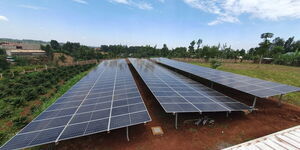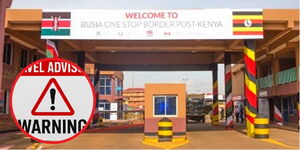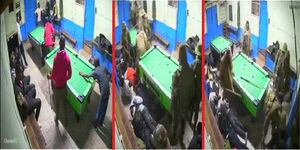Kenyans might have to pay more for diapers and sanitary towels after the government plans to resuscitate its initial plan to convert them from zero-rated to exempt status under the Eco Levy.
“The above measure will have the effect of increasing the cost of supplies since the exemption does not provide relief for input VAT incurred and the cost will be passed on to the final consumers,” read the proposed move by former Cabinet Secretary for National Treasury Njuguna Ndung’u in June, before Ruto halted it.
While items under the exempt schedule do not attract the 16 per cent Value Added Tax (VAT), the manufacturers cannot, however, claim the input tax on the items used to produce the final product, forcing the suppliers to pass on the cost to the final consumer.
Moving zero-rated goods to the exempt status will drive up the consumer prices of sanitary towels and diapers, items that already cost high for Kenyans.
The Eco Levy, a proposal under the Miscellaneous Fees and Levies Act (MFLA) aimed at charging manufacturers and importers whose goods affected the environment.
President William Ruto halted this move after Kenyans went on a rampage and protested against the Finance Bill 2024. The Bill had proposed only the exported goods and services would be zero-rated.
According to the Cabinet Secretary, the move to give the exempt status aimed to reduce the government’s tax expenditure of the government’s estimated revenue forgone after giving tax concessions or preferences to a particular class of taxpayer or activity.
Apart from the diapers and sanitary towels, other items that have been reclassified from zero to exempt status are inputs & raw materials (locally or imported) supplied to manufacturers of agricultural pest control products upon recommendation.
Fertilizers and the raw materials used to manufacture these inputs, as well as pesticides and the raw materials used to manufacture them are also expected to shoot up in prices.
After Kenyan youths took to the streets to protest against the Finance Bill 2024, President Ruto held a Parliamentary group meeting and dropped the proposals, which are now slowly resurfacing.
“The exercise we did on public participation was not an exercise in futility,” National Assembly Finance Committee Chair Kuria Kimani said after the PG meeting in June.
Following President Ruto's move to withdraw the Finance Bill in July, new proposals have been cropping up, a move that Kenyans view as the re-introduction of the Bill.












